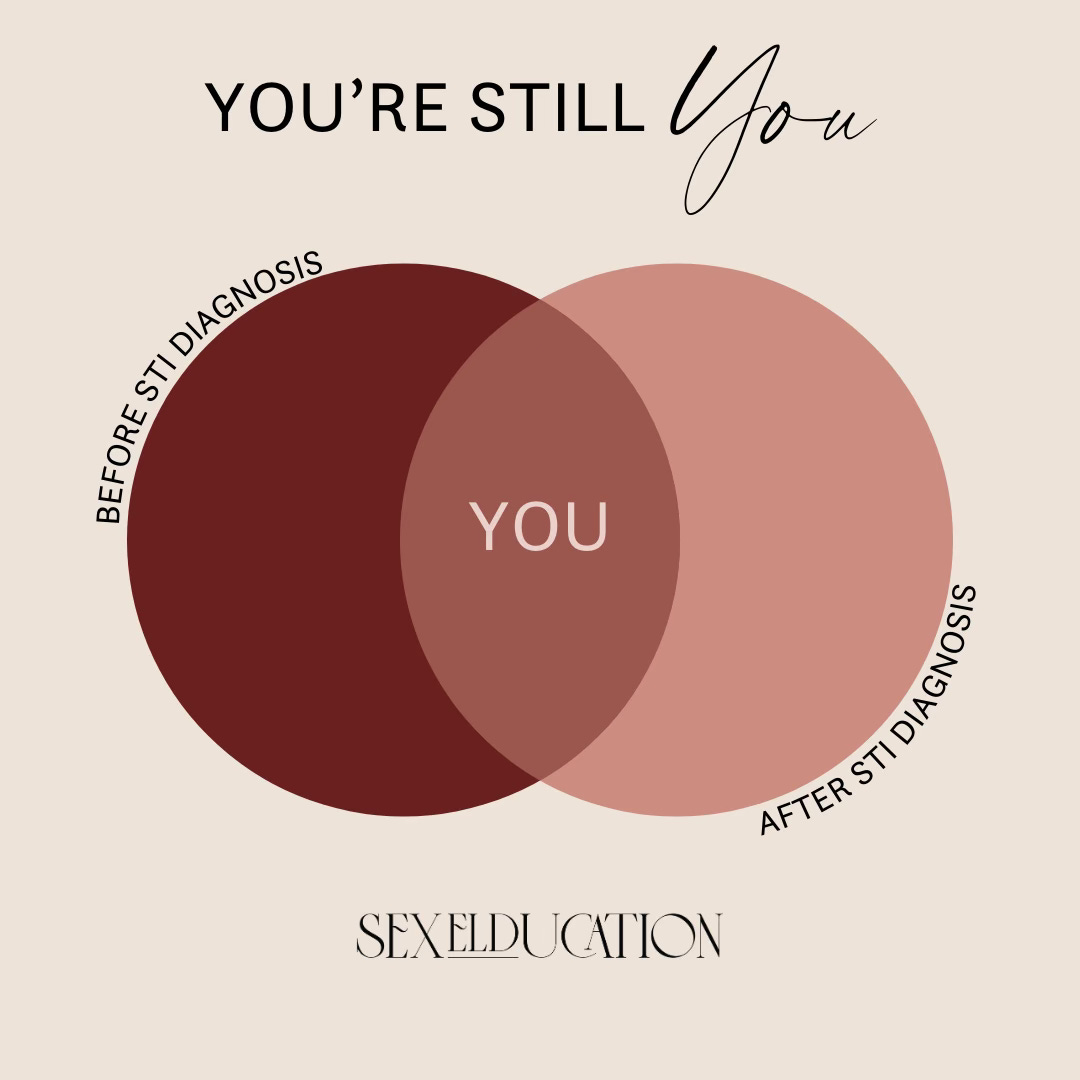Rebuilding Your Identity After a Herpes Diagnosis: Navigating Stigma and Self-Worth
Breaking Free from Stigma: How to Reconnect with Yourself Post-Herpes Diagnosis
For many, a herpes diagnosis signals an end to “casual” dating and sex. What often receives less thought, but experiences more impact, is how our identity suffers post diagnosis.
My Journey with Herpes Stigma
I vividly remember my diagnosis. While I expected herpes to affect my dating life, I never anticipated how deeply it would challenge my sense of self.
Suddenly I felt caught between the old and new: the Emily I was before herpes, and the Emily after. I was no longer looking at my future aspirations or goals; I felt like a personal and professional failure.
The Reality of Stigma
At the time, I believed this was my new reality. But in truth, I was living under the impact of stigma. Herpes stigma is very real, and sometimes, there’s no amount of diagnostic statistics or government guidelines that can help you see the light.
There was no world in which past Emily could be a slut or whore, but current Emily had herpes, so she must be these things. It seems silly looking back on this experience, but I became very unconsciously attached to what society told me people with herpes were like.
Before my diagnosis, I hadn’t met anyone with herpes (to my knowledge). So I had nothing to dispute the social evidence. I was also, unbeknownst to me, an active participant in stigma. Despite my education, I was blissfully unaware of the realities of STIs, like herpes, and the probability I could get one.
That’s right. I was just like everyone else. I probably laughed at jokes people made about herpes and other STIs. I didn’t feel like I was ever the “type” of girl to get one, especially herpes. In my mind, I was invincible. I fell into the 13% of people who didn’t know that over half of people would get an STI at some point in their lifetime.
How Herpes Changed My Relationship with Myself
Unhealthy Coping Mechanisms
Immediately, I was most worried about dating and sex with herpes. “Who will love me, now that I have this?”
But there were larger issues that lurked beneath the surface. I drank alcohol in college, but I was never a self-described party girl. I was the girl who enjoyed her wine and margaritas at the local Mexican restaurant in town with her friends. My diagnosis propelled me into a cycle of excessive drinking.

I initially thought my unhealthy coping mechanisms stemmed from fears about my love life. In hindsight, I realize I was grappling with a deeper issue—my fractured identity.
It wasn’t a question of who will love me—it was a question of how can I love myself?
Reconnecting with My Body
Even though I was still intimate with the guy who gave me herpes, I felt disconnected from my body. My alcohol intake probably didn’t help with this, either.
Know that your relationship with your body during sex, including sex with yourself, may shift. If you find touch uncomfortable—whether from yourself or your partner— consider slowly integrating toys so that you feel comfortable and worthy of pleasure.
Many people forget that the brain is one of the biggest sex organs. If you still don’t feel ready or comfortable with sex, don’t pressure yourself just yet. Instead, look for ways to nurture and care for your body.
Losing Self-Confidence and Identity
Asking myself, “Who will love me?” is a good indicator of where my self-worth and confidence were following my diagnosis. My self-esteem was rebuilt several times through adolescence. I worked intentionally and very hard on it, only for my diagnosis to almost instantly take me back to square one.
I played with vibrant lipstick colors a lot during this period in my life, and I think my lack of confidence allowed me to use bold colors as a mask, like trying on which one fit me.
After graduating from college, I was so certain in who I was and what I was meant to be doing. I felt confident, smart, and like I was ready to handle anything thrown my way (except a herpes diagnosis, apparently).
My lack of confidence and certainty about my life’s direction forced me into losing confidence in my work products, as well as my purpose. I let stigma define who I was and how I showed up in my daily life, which likely fueled my need to numb myself with alcohol.
Rebuilding Your Identity and Confidence
An STI diagnosis can be a traumatic and challenging experience because of the stigma. Here are some ways to work through it:
Education
If you’re someone who didn’t receive comprehensive sex ed growing up, you probably have some learning (and un-learning) to do. This education experience can also bring attention to your values and belief systems—familial, religious, and otherwise.
I truly believe that knowledge is power, and the more we actually know about herpes, the less of a threat it becomes to our sense of self. But note that there is a fine line between seeking knowledge and obsession, it’s important to recognize the difference.
Helpful: Looking at reputable websites and sex positive resources for information for more clarity and information
Unhelpful: Finding that your days become disrupted by questions about herpes. It’s difficult to complete daily tasks and show up for those you love.
Community
Community is essential for growth and connection in life. Having someone to share about your highs and lows with in life is invaluable. Whether your go-to is your mom, best friend, or someone from a group you’re part of, consider opening up about how you’re feeling. Your friends want to see you win, thrive, and cheer you on to be the best you—don’t lose sight of that.
Since my diagnosis in 2015, one of the biggest changes I’ve noticed is the rise of virtual communities. While message boards and social media have long existed, more people today are sharing their stories to raise awareness and break down stigma.
With younger generations seeking their answers on social media, these communities serve an even more important role.
Spend Time Doing Things You Love
Herpes doesn’t get to define you. You’re still the same person you were before your diagnosis. If you loved cooking before, you’ll still love cooking after. There no switch that suddenly takes away the things you enjoy because of your diagnosis.
In times when you’re feeling down or not quite like yourself, think about where you usually find joy. Sometimes, this might mean binge-watching Netflix, and other times, you may be more eager to go out with your friends or curl up with your favorite book.
Practice Self-Compassion
I’ve written about the importance of practicing self-care during outbreaks, but practicing self-compassion in times when you’re not having an outbreak is just as important.
Consider developing a mantra when you find your thoughts shifting more toward obsession, or if you find yourself struggling to see your self-worth. It doesn’t have to be complicated, here are some examples:
I am [worthy] - insert what word speaks most to you and what you’re trying to cultivate
Herpes doesn't define me
Herpes is a virus, I am a person
You can set these affirmations up as reminders on your phone, or notes on your mirror or fridge.
How to Know When to Reach Out for Professional Support
Because of the stigma, herpes can take a toll on your mental health.
You might experience increased anxiety about sharing your STI status or getting tested, or feel your self-esteem drop because you believe you’re part of the stigma. Even if you intellectually understand that herpes doesn’t define you, it can still be hard to separate that truth from the beliefs you’ve been taught.
Seeking support to navigate the mental and emotional challenges during this time can be incredibly helpful. I recommend seeking out someone who is trained in sex therapy, as they’ll be able to create space to talk about your feelings and diagnosis without shame. The American Association of Sexuality Educators, Counselors, and Therapists (AASECT) is a great resource to begin your search.
While other therapists can offer support, they may lack the specialized knowledge to address these specific concerns, which may leave you feeling uncertain or unable to fully open up. Additionally, be cautious of anyone labeling themselves as a “herpes coach.”
The Path Forward
A herpes diagnosis can challenge your sense of self, but it doesn’t have to permanently redefine who you are. With the right education, support, self-compassion, and perhaps professional guidance, you can reclaim your identity and continue to live a full, vibrant life as your authentic self.
If you enjoyed this article, you might also like:
How to Care for Yourself When You’re Having a Herpes Outbreak
Casual Sex After Herpes: Disclosure Strategies for an Empowered Dating Life
Am I Allowed to Be Angry at the Person Who Gave Me Herpes?
If you learned something from this post, I’d love your support! Click ❤️ and share 🔁 to help spread the word and reach more people. Thanks so much!






